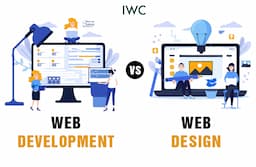What is the Workflow of Android App Development?

Introduction
Workflow of Android App Development: In the dynamic landscape of mobile technology, Android app development has emerged as a pivotal player, facilitating innovative solutions for diverse user needs. This blog aims to demystify the intricate process of creating an Android application by exploring the workflow of Android app development. We'll delve into the key stages, best practices, and considerations that developers encounter during this journey.
Workflow of Android App Development
I. Initial Planning
Before delving into the actual development, a well-thought-out plan sets the foundation for success. This phase involves defining the app's purpose, target audience, and features. Developers focus on understanding client requirements, market trends, and competitor analysis. Furthermore, considerations for android app development cost in India are integral to creating a budget-friendly yet effective strategy.
II. Designing the User Interface (UI/UX)
Once the blueprint is in place, the UI/UX design phase begins. This stage is crucial for creating an intuitive and visually appealing interface. Designers and developers collaborate to craft wireframes, prototypes, and mockups. Iterative feedback loops refine the design, ensuring a seamless and engaging user experience.
III. App Architecture
Choosing the right architecture is paramount for scalability and maintainability. Common architectures include Model-View-Controller (MVC), Model-View-Presenter (MVP), and Model-View-ViewModel (MVVM). Developers select an architecture that aligns with the app's complexity and requirements.
IV. Development
The development phase involves writing code, implementing features, and ensuring functionality. Developers utilize the Android Studio IDE and may opt for programming languages like Java or Kotlin. Continuous integration and version control systems streamline collaboration and code management.
V. Testing
Quality assurance is a critical aspect of the Android app development workflow. Developers conduct unit testing, integration testing, and user acceptance testing to identify and rectify bugs. Emulators and physical devices are used to ensure compatibility across various Android versions.
VI. Deployment
Once the app passes rigorous testing, it's ready for deployment. Developers publish the app on the Google Play Store, adhering to the platform's guidelines. This involves creating a compelling app description, setting up monetization strategies, and optimizing keywords for enhanced visibility.
VII. Post-Launch Activities
The release of the app is not the end of the road. Developers actively monitor user feedback, analyze performance metrics, and release updates to address any issues or introduce new features. This iterative process ensures the app evolves in response to user needs and technological advancements.
VIII. Emerging Trends in Android App Development
In addition to understanding the conventional workflow of Android app development, it's crucial to stay abreast of emerging trends that can significantly impact the industry. Keeping an eye on these trends can provide developers with a competitive edge and open up new possibilities for creating cutting-edge applications.
1. Artificial Intelligence (AI) and Machine Learning (ML) Integration:
- Incorporating AI and Machine Learning Development functionalities in Android apps is becoming increasingly popular. From personalized recommendations to intelligent chatbots, integrating these technologies enhances user experiences and adds a layer of sophistication to the app.
2. Internet of Things (IoT) Connectivity:
- With the proliferation of IoT devices, there is a growing demand for Android apps that can seamlessly connect and interact with smart devices. Developers need to consider IoT integration in the app development process to ensure compatibility with the evolving ecosystem of connected devices.
3. Augmented Reality (AR) and Virtual Reality (VR):
- AR and VR technologies are transforming how users engage with mobile applications. From gaming to immersive shopping experiences, incorporating AR and VR elements requires a specialized skill set. Developers need to adapt their workflows to accommodate these advanced features.
4. Blockchain Integration:
- As blockchain gains traction, its integration into Android apps is on the rise. This is particularly relevant for applications involving secure transactions, decentralized systems, and data privacy. Developers need to explore how blockchain can enhance the security and transparency of their applications.
5. Foldable and Dual-Screen Devices:
- The advent of foldable and dual-screen devices introduces new challenges and opportunities for app developers. Adapting user interfaces to different screen configurations and ensuring a seamless experience across various form factors is a consideration in the evolving landscape of Android devices.
IX. Best Practices for a Streamlined Android App Development Workflow
To further enhance the efficiency and effectiveness of the Android app development workflow, developers should adhere to industry best practices. These practices ensure a smooth and collaborative development process, ultimately leading to the creation of high-quality and user-friendly applications.
1. Agile Development Methodology:
- Adopting an agile development methodology promotes flexibility and adaptability throughout the development lifecycle. Regular sprints, continuous feedback, and iterative development cycles contribute to a more responsive and efficient workflow.
2. Cross-Functional Collaboration:
- Facilitating open communication and collaboration between designers, developers, and QA engineers is essential. Cross-functional teams can address issues more effectively, share insights, and collectively work towards delivering a cohesive and polished app.
3. Security Measures:
- Prioritizing security throughout the development process is non-negotiable. Implementing secure coding practices, regular security audits, and data encryption measures safeguard the app and user data against potential threats.
4. Performance Optimization:
- Optimizing app performance is critical for user satisfaction. Developers should focus on minimizing app load times, reducing resource usage, and optimizing code to ensure a smooth and responsive user experience.
5. Regular Code Reviews:
- Conducting regular code reviews helps identify potential issues early in the development process. Peer reviews enhance code quality, ensure adherence to coding standards, and contribute to knowledge sharing within the development team.
Considerations for Android App Development Cost in India
Throughout the entire workflow of Android app development, cost considerations play a pivotal role. In India, where outsourcing is a prevalent practice, factors such as development team size, complexity of features, and project timeline influence costs. It's essential to strike a balance between quality and affordability, ensuring a cost-effective solution without compromising on the app's functionality.
Conclusion
The workflow of Android app development is a multifaceted journey that demands meticulous planning, creative design, robust development, and continuous refinement. By understanding each stage and embracing best practices, developers can navigate the complexities of creating innovative and successful Android applications. Balancing the intricacies of the process, including considerations for android app development cost in India, ensures that the final product not only meets but exceeds user expectations.
FAQ: Frequently Asked Questions
Q1: What is the workflow of Android app development?
A1: The workflow of Android app development encompasses several stages, including initial planning, UI/UX design, app architecture, development, testing, deployment, and post-launch activities. This systematic process ensures a comprehensive approach to creating high-quality Android applications.
Q2: Why is planning crucial in the Android app development workflow?
A2: Planning sets the foundation for a successful app development journey. It involves defining the app's purpose, target audience, and features. Thorough planning helps developers understand client requirements, market trends, and aids in creating a budget-friendly strategy.
Q3: What role does UI/UX design play in the Android app development workflow?
A3: UI/UX design is vital for creating an intuitive and visually appealing interface. Designers collaborate with developers to craft wireframes, prototypes, and mockups. Iterative feedback refines the design, ensuring a seamless and engaging user experience.
Q4: How do developers choose the right architecture in the app development process?
A4: Developers select an architecture, such as Model-View-Controller (MVC) or Model-View-ViewModel (MVVM), based on the app's complexity and requirements. The chosen architecture impacts scalability and maintainability.
Q5: What are the key considerations during the testing phase of Android app development?
A5: The testing phase involves unit testing, integration testing, and user acceptance testing. Emulators and physical devices are used to ensure compatibility across various Android versions, and rigorous testing helps identify and rectify bugs.
Q6: How is an Android app deployed?
A6: Once the app passes testing, it is ready for deployment. Developers publish the app on the Google Play Store, following platform guidelines. This involves creating a compelling app description, setting up monetization strategies, and optimizing keywords for visibility.
Q7: What activities are involved post-launch in Android app development?
A7: Post-launch activities include actively monitoring user feedback, analyzing performance metrics, and releasing updates to address issues or introduce new features. This iterative process ensures the app evolves in response to user needs and technological advancements.
Q8: How do considerations for Android app development cost in India factor into the workflow?
A8: Throughout the workflow, developers need to consider factors affecting the cost, especially in regions like India where outsourcing is common. Team size, complexity of features, and project timeline influence costs, requiring a balance between quality and affordability.
Q9: What are some emerging trends in Android app development?
A9: Emerging trends include the integration of Artificial Intelligence (AI) and Machine Learning (ML), IoT connectivity, Augmented Reality (AR) and Virtual Reality (VR), blockchain integration, and adapting to foldable and dual-screen devices.
Q10: What are the best practices for a streamlined Android app development workflow?
A10: Best practices include adopting agile development methodology, encouraging cross-functional collaboration, prioritizing security measures, optimizing app performance, and conducting regular code reviews. These practices contribute to a more responsive and efficient development process.
Read also:
What is a Responsive E-Commerce Modern HTML Template?
Recent Blogs

What to Expect from a Professional Web Design Service

Difference Between Web Design and Web Development
